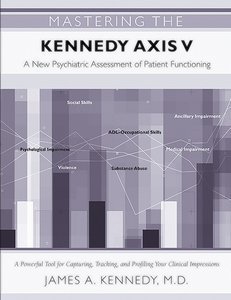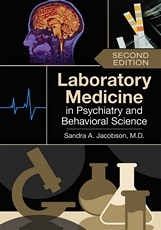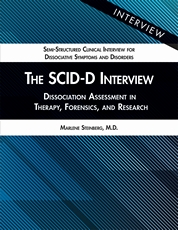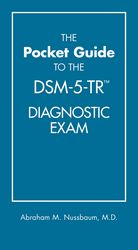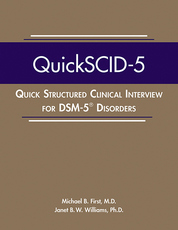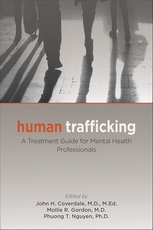Mastering the Kennedy Axis V
A New Psychiatric Assessment of Patient Functioning
View Pricing
Description
Mastering the Kennedy Axis V: A New Psychiatric Assessment of Patient Functioning is a hands-on guide to using the Kennedy Axis V (K Axis). This fast and powerful instrument is at the heart of James A. Kennedy's approach to psychiatric treatment planning.
This versatile and practical workbook is an excellent training tool to help clinicians (including psychiatrists, psychologists, social workers and nurses) develop knowledge, skill, and confidence in using the K Axis. Mastering the Kennedy Axis V will help you
- Develop ease and facility with the concepts on which the K Axis is founded
- Gain practical experience in using the K Axis through practical exercises
- Build a foundation for systematically tracking response to treatment, including response to medication
- Organize and track the flow of clinical information through a patient's clinical databases, treatment plan and progress notes
Step-by-step, you'll walk through the conceptual underpinnings and rating systems of the seven subscales: psychological impairment, social skills, violence, activities of daily living/occupational skills, substance abuse, medical impairment and ancillary impairment. Through a wide variety of clinical vignettes, you will gain practical experience in using the K Axis to quickly develop basic clinical measurements and profiles.
Developed as an alternative to the Global Assessment of Functioning (GAF) Scale, the Kennedy Axis V is clear, intuitive, effective—and preferred by a growing number of clinicians. Mastering the Kennedy Axis V provides a user-friendly roadmap to using the K Axis to more thoroughly assess patients' clinical status, resulting in better treatment and outcome.
Contents
- Foreword
- Acknowledgments
- Cautionary Note
- Identifying Patient Data
- Chapter 1. Introduction
- Chapter 2. Kennedy Axis V Questionnaire
- Chapter 3. Scoring the Kennedy Axis V
- Chapter 4. GAF Equivalent and Dangerousness Level
- Chapter 5. Problem Description Section of the Scoring Sheet
- Chapter 6. Scoring Clinical Vignettes (Self-Examination)
- Chapter 7. Completed Kennedy Axis V Scoring Sheets
- Chapter 8. Profiles
- Appendix
About the Authors
James A. Kennedy, M.D., is Associate Professor of Psychiatry at the University of Massachusetts Medical School in Worcester, Massachusetts, Director of the Demonstration Unit at Westborough State Hospital in Westborough, Massachusetts, and President of Kennedy, MD Consulting in Shrewsbury, Massachusetts.
Related Products
Carousel Control - items will scroll by tabbing through them, otherwise arrows can be used to scroll one item at a time
